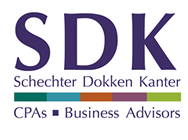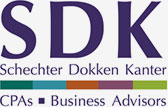Retirement Plan Updates Beginning in 2024
In previous articles we have discussed a few of the many provisions that were contained in SECURE 2.0. This article is to prepare plan sponsors for provisions of the act that will go into effect starting in 2024. We will also cover other plan changes that will become effective in 2024.
Long-Term Part-Time Employees (Mandatory Provision):
While SECURE 2.0s changes to this original SECURE Act provision does not kick in until 2025, the original SECURE Act’s long-term part-time employee provision for 401(k) plans starts in 2024. This provision requires plan sponsors to allow employees who have not met the plan’s eligibility requirements to be eligible to make deferrals into the plan once they have worked at least 500 hours per year for three consecutive years. These employees are not required to be provided any employer contributions until they satisfy the plan’s regular eligibility requirements. To prepare for this change, plan sponsors should work with their Third-Party Administrators to review their records to accurately determine which employees need to be provided the opportunity to defer into the plan on January 1, 2024.
Matching Student Loan Payments (Optional Provision):
A defined contribution plan may implement a policy that would permit employers to make matching contributions into retirement plans based on their employees’ payments on their student loans. Essentially this provision allows the employer to treat student loan repayments the same as deferrals for purposes of calculating a matching contribution. The matching contribution must follow the same formula as their regular matching contributions.
Penalty-Free Withdrawals (Optional Provisions):
Secure 2.0 included additional exceptions to the 10% early distribution penalty that usually applies for distributions prior to age 59 ½. One of the new exceptions applies to distributions of up to $1,000 if the funds are used for an emergency personal expense. The plan sponsor can rely on participant self-certification that they qualify for the distribution. Participants are only allowed to take this type of distribution once per calendar year and participants are not allowed to take another one of these distributions for 3 years unless the previous taken distribution amount has been repaid to the plan.
Another instance where the 10% early distribution penalty would be waived is for domestic abuse victims. These individuals can take an early distribution of up to $10,000 or 50% of their vested account balance, whichever is less. The plan sponsor is once again able to rely on the participant to self-certify that they qualify for the distribution.
Both types of distributions are eligible to be repaid to their retirement accounts over a three-year period.
Roth 401(k) and RMDs
Beginning in 2024, Roth 401(k) and Roth 403(b) sources are not subject to required minimum distributions (RMD). Prior to this legislation coming into effect, Roth 401(k) or 403(b) sources were required to be included in the calculation of the RMD. This now treats Roth deferrals the same as Roth IRAs are treated for RMD purposes.
As you can see from above, there is a lot to think about regarding your retirement plan going into the new year. SDK is always happy to assist with your questions, whether it be from implementing any of the above or if you have questions on if any would be a good fit for your plan. Should you have any questions, please reach out to Cole Hegstad or Nicole Brown.


